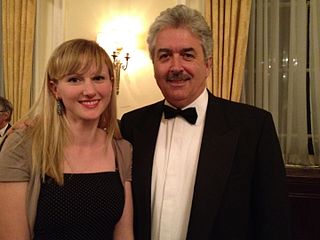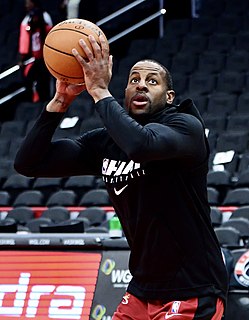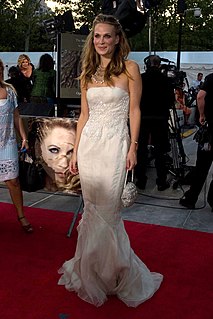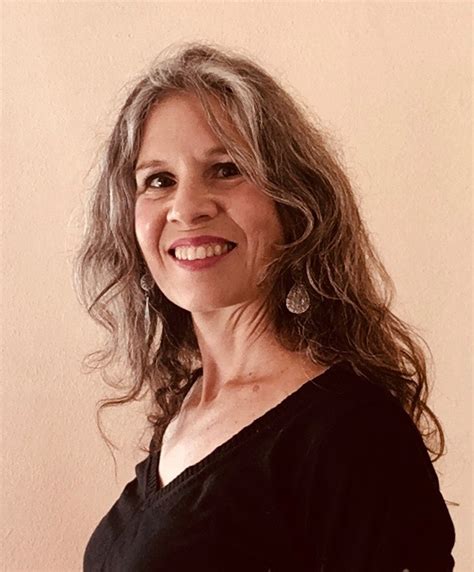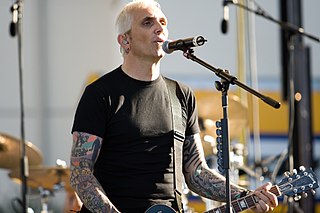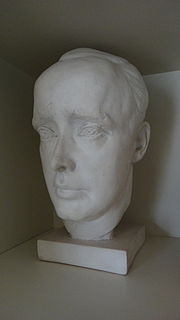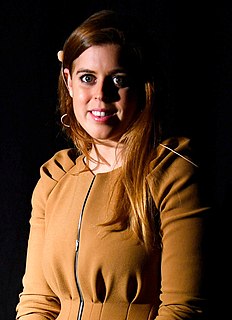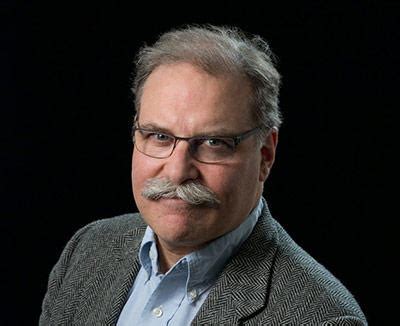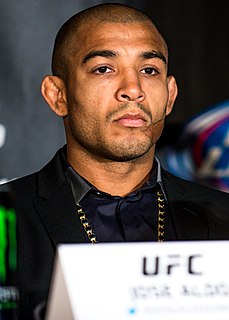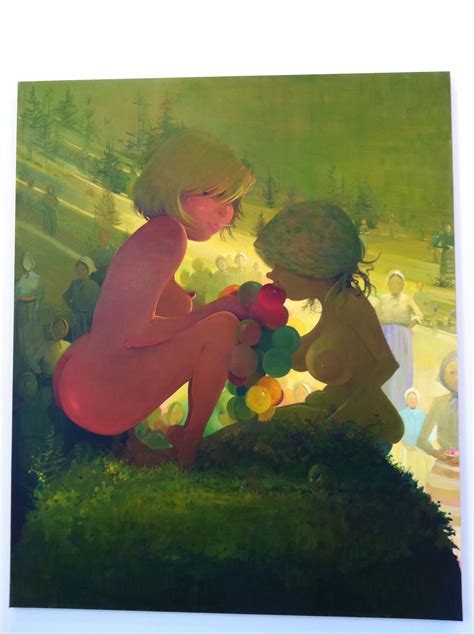Top 1200 Reading And Learning Quotes & Sayings - Page 19
Explore popular Reading And Learning quotes.
Last updated on December 22, 2024.
You are well equipped with an incredible potential for absorbing knowledge. Let your imagination, the key to learning and memory, unleash that brain power and propel you along at ever-increasing speeds. It’s not an exclusive path with access granted only to those with a special gift for learning. It is, instead, available to everyone who has a brain. Anything’s possible.
I have read so many books. And yet, like most Autodidacts, I am never quite sure of what I have gained from them. There are days when I feel I have been able to grasp all there is know in one single gaze, as if invisible branches suddenly spring out of no where, weaving together all the disparate strands of my reading. And then suddenly the meaning escapes, the essence evaporates and no matter how often I reread the same lines they seem to flee ever further with each subsequent reading and I see myself as some mad old fool who thinks her stomach is full because she's been reading the menu.
Reading honest literature makes you love the world. Knowledge and understanding are love. Reading educates our feelings and enhances our sympathy. When you read for understanding, you are fundamentally changed. You are a different person at the end of the story or the novel than you were when it began.
So we start with an oversignifying reader. Those texts that appear to reward this reader for this additional investment - text that we find exceptionally suggestive, apposite, or musical - are usually adjudged to be 'poetic'. ... The work of the poet is to contribute a text that will firstly invite such a reading; and secondly reward such a reading.
My mistakes made were learning how to work with different groups of people. I mean, I went to school at Berkeley, which is a pretty diverse group, but working in a professional setting, I hadn't really done that before and learning about office politics, learning about interactions between different people and I made a lot of mistakes there during my time as a young person. I was 19 or 20 at the time. So, I would say those were my biggest career mistakes, but fortunately they were made in the context of an engineering co-op program and not in a professional field.
Because most of the girls were still in mourning and all of them had lost their textbooks, even pencils and pens, Shaukat Ali began the first classes by reading to them from poetry and religious texts. "Reading, literature, and spirituality are good for the soul," he told them. "So we will start with these studies.
The biggest thing is to give it back. You want to leave the game in a better situation than you came in with it. That's really important to me, especially being an avid reader and just learning about how to build businesses, learning how to make the most of the business you're in, the ins and outs of the relationships that you build as well.
Reading has always been my home, my sustenance, my great invincible companion. "Book love," Trollope called it. "It will make your hours pleasant to you as long as you live." Yet of all the many things in which we recognize some universal comfort...reading seems to be the one in which the comfort is most undersung.
Philosophy is not a body of knowledge to impart to someone, that's why reading philosophy books isn't always the best way of learning philosophy. Philosophy is really more the process of rational engagement, rational reflection with a diversity of views and ideas and opinions and trying to sort of reason your way through to a more reflective position. I think if you look at it that way, philosophizing is to some extent some small way a part of almost everyone's lives although they don't recognize it as such and a lot of people are embarrassed about it.
There is, so I believe, in the essence of everything, something that we cannot call learning. There is, my friend, only a knowledge-that is everywhere, that is Atman, that is in me and you and in every creature, and I am beginning to believe that this knowledge has no worse enemy than the man of knowledge, than learning.
You can sit down with your child and prompt him to show you something - perhaps how to play a game [on the computer]. By learning a game, you're getting close to the kid and gaining insight into ways of learning. The kid can see this happening and feels respected, so it fosters the relationship between you and the kid.
It's horrible for someone to listen to someone learning any instrument - when I was first learning the banjo, I used to have to go out and sit in the car, and even in the summertime I'd have to roll up the windows. Because you just couldn't practice a banjo or a fiddle with other people around. Unless they're being paid.
Every child's taste is different. Don't worry if they're not reading 'War and Peace' at age 12. First, build a good foundation and a positive attitude about reading by letting them pick the stories they enjoy. Make friends with a bookseller or librarian. They are a wealth of information on finding books that kids enjoy.
It is because of that balanced relationship to the moment that mindfulness serves as the platform for insight... if we feel an emotion, for example, and struggle against it right away, there is not going to be a lot of learning going on. In the same way, if we are swamped by that emotion, overcome by it, there won't be enough space for there to be learning or insight.
Your teacher cannot bridge the gap between what you know and what you want to know. For his words to ‘educate' you, you must welcome them, think about them, find somewhere for your mind to organize them, and remember them. Your learning is your job, not your teacher's job. And all you need to start with is desire. You don't need a schoolteacher to get knowledge - you can get it from looking at the world, from watching films, from conversations, from reading, from asking questions, from experience.
In novels you're able to occupy character's internal thoughts and it's really hard to do in a film or a TV show. When you're reading a character's thoughts or when it's in first person, you're reading kind of their own story, so you have the opportunity to see what makes that character complex or complicated. And to me that's what the whole point of fiction is.
I spent so much of my life reading about spirituality and reading about neuroscience and trying different meditation practices. It's a really big part of my life. But it's sometimes hard to talk about. There are so many people in the world who don't live in Southern California and don't spend their time meditating.
We need that same mentality in philanthropy, trying things, taking risks, recognizing the first try, maybe the second try, maybe the third try won't work. But if you stay at it and you're learning, you're talking to others, and you're learning together, eventually you'll break through and see the kind of impact you were hoping for.
Many of us grow up thinking of mistakes as bad, viewing errors as evidence of fundamental incapacity. This negative thinking pattern can create a self-fulfilling prophecy, which undermines the learning process. To maximize our learning it is essential to ask: "How can we get the most from every mistake we make?"
Theatre has been a sort of hobby. I regret that I am not active, but given my job that is difficult. But those were learning days. The learning curve was the level of confidence, maturity, and reflexes that theatre teaches you is fantastic. You are alone in front of an audience for two hours and that gives you a different kind of confidence.
If I had millions and millions and millions of dollars, I'd leave a large portion to the 42nd Street library. That's why - that was my hangout, the reading rooms, the North and South reading rooms. I'd go there, and my God, I couldn't believe I had access to all of these books. That was my university.
I still have a struggle reading (dyslexia, fh) and so I don't read much.. ..Probably the only reason I'm painter is because I couldn't read yet I love to write, but when I write I know what I'm writing, but when I'm reading I can't see it, because it goes from all sides of the page at once. But that's very good for printmaking.
Whoever's reading this, if anyone is reading it: does it matter that our old selves are lost to us as surely as the past is lost, or is it enough to know yes we lived then, and we are living now, and the connection must be there? Like a river hundreds of miles long exists both at its source and at its mouth, simultaneously?
When I was younger, I was diagnosed with dyslexia, which meant, for me, sitting in front of a book was really hard - until I discovered Harry Potter, and this character, this 11-year-old boy, who suddenly gets off to school for the first time, captured my imagination, and suddenly reading was fun. Reading was inspiring, and I was motivated.
Service-learning is a particularly fertile way of involving young people in community service, because it ties helping others to what they are learning in the classroom. It enables them to apply academic disciplines to practical, everyday problems. In the process, it provides a compelling answer to the adolescent's perennial question, 'Why do I need to learn this stuff?
Learning should be engaging. Testing should not be the be all and end all. All students should have a broad curriculum that includes the arts and enrichment. Students should have opportunities to work in teams and engage in project-based learning. And student and family well-being should be front and center.
I recommend learning how to come into the presence of stillness and vastness. Learn any form of meditation. Spend twenty minutes every day if possible, in meditation, listening to the crazy monkey mind inside you, and learning how to still the thoughts and discover that big, deep soulful part of yourself.
Traditionally, life has been divided into two main parts: a period of learning followed by a period of working. Very soon, this traditional model will become utterly obsolete, and the only way for humans to stay in the game will be to keep learning throughout their lives and to reinvent themselves repeatedly.
My definition of learning is to remember what you are interested in. If you don't remember something, you haven't learned it, and you are never going to remember something unless you are interested in it. These words dance together. 'Interest' is another holy word and drives 'memory'. Combine them and you have learning.
I'll wait to see what the film [The Lobster] is, but it's set in a contemporary world, in America, there are hospitals and diners, parks, things that we will recognize and experienced ourselves but yet there's this similar kind of uneasiness through all the interactions and all the things that take place. It was unnerving reading the script. I kind of felt nauseous after reading it.
